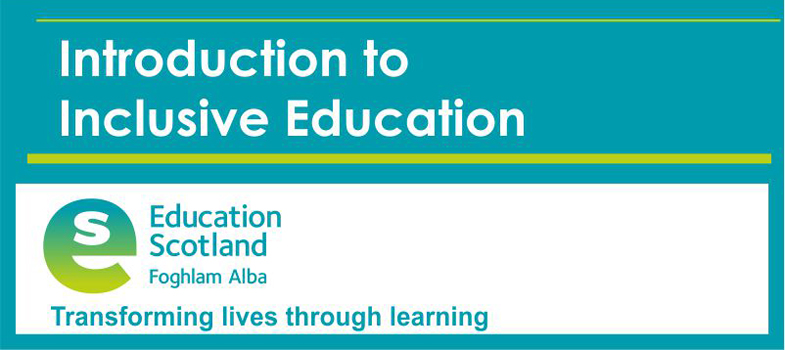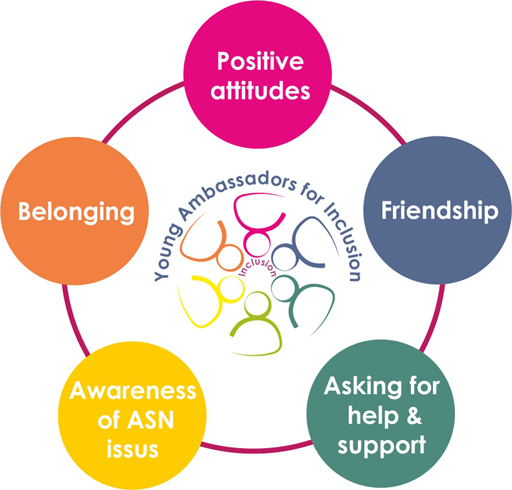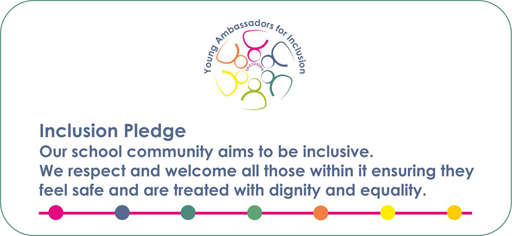2.3 Young Ambassadors for Inclusion
The Young Ambassadors for Inclusion are children and young people with additional support needs in secondary schools who have been nominated by their local authority to join a network which provides an opportunity for them to share their views and experiences of Scottish education. Twenty-six local authorities have been represented since the network began in 2015.
Through discussion and activities the Young Ambassadors have identified the ways they feel schools are doing well in their provision of inclusive education and also where improvements could be made. They have shared their ideas with the Deputy First Minister during a visit to Parliament.
The Young Ambassadors were keen to share their views on what works in inclusive education and have created professional learning resources, one of which is a film which allows their views to be heard and aims to help staff understand how to support young people with additional support needs.
The ‘Ask Us, Hear Us, Include Us' film and professional learning materials looks at what works and what could be improved in relation to inclusion in education. The PowerPoint explores the film further and looks at five themes identified by the Young Ambassadors as important for inclusion and which are highlighted in Fig 6
- Belonging
- Friendship
- Awareness of additional support needs
- Positive attitudes
- Asking for help and support.
They have also developed a pledge for schools and local authorities to use when working towards developing improvements in inclusive education.
The network is funded by Scottish Government and supported by staff from Education Scotland and Enquire.
A range of resources, including the film, are available to download from the National Improvement Hub
https://education.gov.scot/ improvement/ self-evaluation/ young-ambassadors-for-inclusion [Tip: hold Ctrl and click a link to open it in a new tab. (Hide tip)]
2.2 Equality


